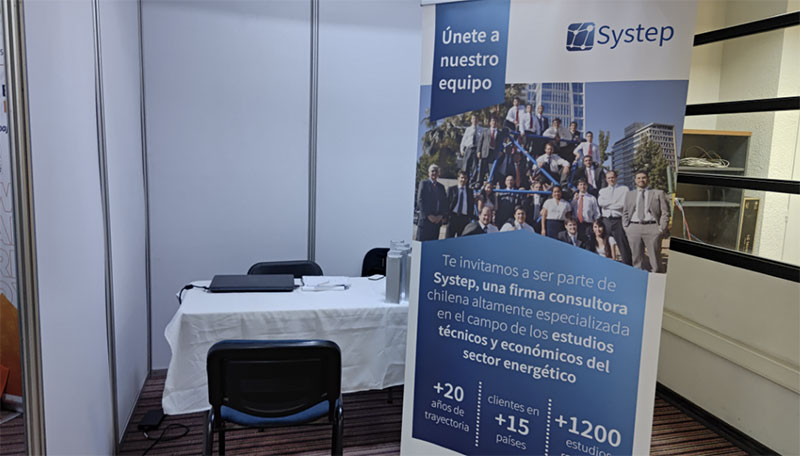
The latest Monthly Report on the Electricity Sector prepared by Systep raises doubts as to whether the State will continue to play the role of judge and party in the supply bidding system for regulated clients.
Operator versus regulator
A new bidding process for the supply of electricity to regulated customers will begin in May of next year. As a prelude, the sector is once again debating the role played by the State in these awards, an issue that, although discussed last year in the last change to the law, was not finally incorporated, but now there is again the option of doing so through the changes to be made to the Transmission Law.
Last year, the consulting firm Systep, linked to renowned electricity expert Hugh Rudnick, identified a series of deficiencies in the bidding system at the time. Among them, the bidding period was mentioned, which had deadlines that hindered the entry of new players and, in addition, there was a lack of instruments and flexibility for generators to conveniently face market risk.
Thus, Law 20,805, which improved the supply bidding system, approved in early 2015, took care of most of the deficiencies detected, except for one: that the State should be prevented from being both system and market operator at the same time.
This, according to Systep, could lead to conflicts of interest. “Having a government organization determining the guidelines for the bidding procedure carries risks, such as exposure to the political cycle and the dual role of regulator and market operator,” they say at the consultancy. They add that this would occur because “whoever supervises, monitors and regulates is also operating. According to the way the market operates and how the action between private parties is, it does not seem to us that it is the government that has to make these decisions”.
The problem, they say, is that behind this dynamic are interests that go beyond the technical and economic. “Here we believe that the most important thing is stability, because these are very long-term instruments that must provide certainty not only to generators and customers, but also to financial institutions and to all those who participate in this chain,” Systep said.
For this reason, the entity proposes the creation of a bidding entity independent from the State, autonomous from interest groups and not subject to political periodicity. “This body, of a technical nature, should permanently monitor the market and analyze its future conditions, being able to offer an efficient portfolio of different types of contracts by means of a return-risk assessment.” This would allow for an independent technical-economic process, which would provide greater certainty to all market players, as described in the report.
“What we proposed was to create the figure of an autonomous market operator, suggesting that the CDEC be the one to fulfill that role,” Systep said. The problem, they were told, was that the CDECs were not sufficiently independent entities, and that the entire political and social cost was borne by the government, which led to the law perfecting the bidding mechanism to strengthen the powers granted to the National Energy Commission (CNE), stating that the agency must design, coordinate and direct the process.
This law considered that the State “must safeguard compliance with the guidelines of the energy policy in the supply of regulated customers since it is a public service. In this way, the State will be able to ensure and supervise that this service is reliable, sustainable, inclusive and at reasonable prices”, says Andrés Romero, executive secretary of the CNE.
In addition, as the regulatory authority is responsible for preparing, designing and implementing supply tenders, it becomes responsible for the results of these tenders and their implications for the development of the electricity sector. “Given that it is the authorities who are responsible for high prices due to poorly designed tenders, it is consistent that they should be the main stakeholders in their design and outcome,” adds Romero.
Revenge
One year after this concern was raised, the discussion is reopened after one of the main reforms that the project that modifies the General Law of Electric Services will make is the creation of an Independent Coordinator of the National Electric System (Cisen), which will replace the current Economic Load Dispatch Centers (CDEC), and will be the new coordinator of the National Interconnected System.
The agency, which will be independent of the agents and will not be part of the State administration, will be the result of the merger of the current CDEC SIC and CDEC SING, maintaining the powers of these agencies and adding other functions, such as monitoring competition in the electricity market.
This could be the potential candidate to fulfill the functions proposed by the consulting firm, exercising the role of bidding entity, complementing that of market operator. In this way, the Cisen would be incorporated into the bid design process, considering that the projection of demand and market conditions are parameters that could be accurately evaluated by this agency, by continuously analyzing the market. In turn, it would become a single integrator, coordinating the market by receiving energy from generators and allocating it to the different types of contracts.
“It seems to us that it is more robust to do it that way,” they say at Systep, and add: “We believe that now is the opportunity. If the bill is presented and there is discussion in Parliament, this is the opportunity to talk about it”.
However, Romero emphasizes that “the Electric System Coordinator would not be the appropriate body to carry out supply tenders, because its purpose is mainly to coordinate short-term operations, while supply tenders are more of an exercise that requires long-term planning. In other words, this matter is out of its focus of action and it does not have the incentives to develop a better design than the CNE has”.



